Much like skydiving, for years I’ve anticipated learning to do that other dive that starts with an ‘S’: scuba diving. It was on my informal bucket list, and this trip to Cairns provides the perfect opportunity to check it off. And what better place to learn than at the Great Barrier Reef?
Enter Cairns Dive Centre. In exchange for photography, they offer to host my Open Water dive course. And I am so grateful for the opportunity!
This is our dive class, taught by Scott (far left):
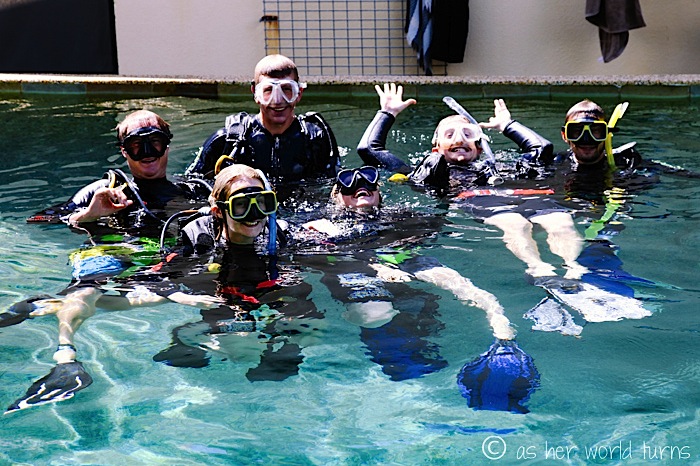
The four-day course involves two days at “school” in Cairns — watching instruction videos, practicing skills underwater in the pool, completing homework assignments, and taking a written test. The final two days are spent on a live-aboard boat out on the Great Barrier Reef — this is where we practice those same skills in the ocean and officially earn our Open Water dive license.
Note: this is an SSI course (Scuba Schools International), which we’re told is very similar to PADI (Professional Association of Diving Instructors). Scott tells us it’s like Coke and Pepsi, and both licenses are recognized equally. I’ve found that is indeed the case while diving in other spots around the world — Bali, Borneo, Palau.
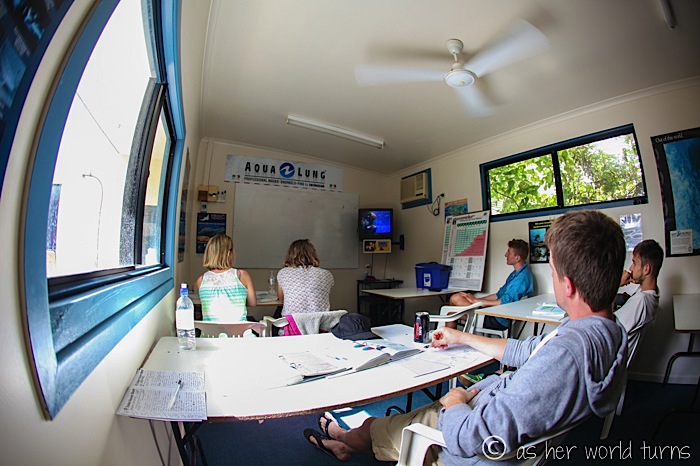
In between classroom time we log several hours in the pool — it’s around 4 feet deep on both ends, but drops to 15 feet deep in the middle so we have more depth to practice our skills.
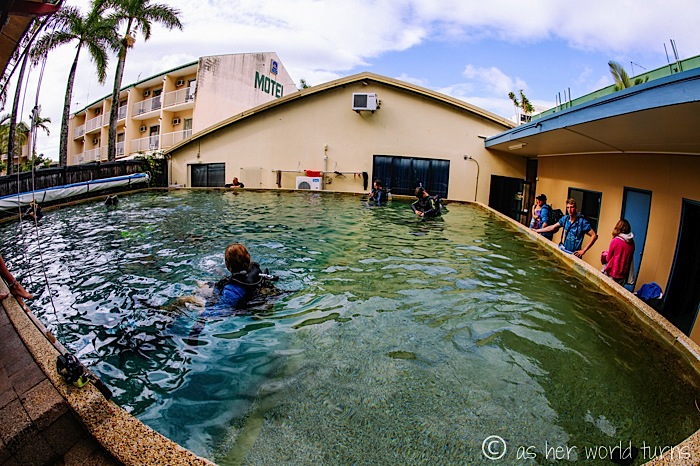
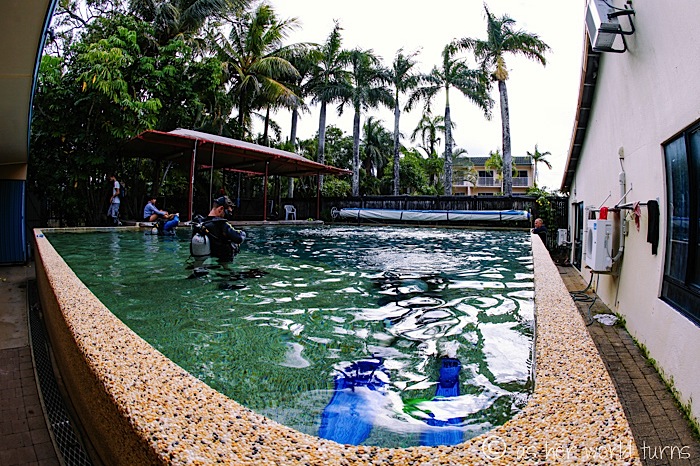
Here we are underwater — since I’m busy learning, I only bring my camera in for the last five minutes of our final lesson. My classmates practice taking their regulators and snorkel masks off and on under water.

This is our assistant dive instructor. He’s very fun.

I spend several hours one night doing all the homework and studying for the exam. I’m using a part of my brain I turned off years ago!

But despite my rusty study skills, I pass with flying colors — 48 out of 50 questions correct.
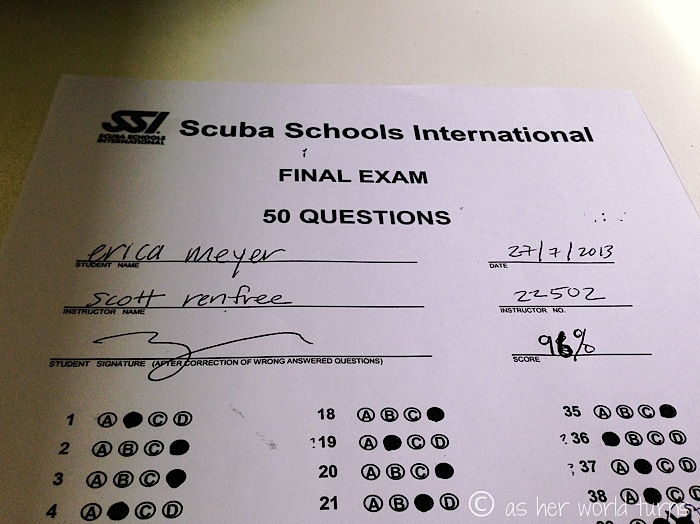
I don’t get my actual license until the end of the course two days later. In fact, Scott actually presents them to us underwater! It’s in our group video, which I hope to be able to show you someday (I have the DVD files but have yet to convert them to video). In the meantime, here’s my official license:
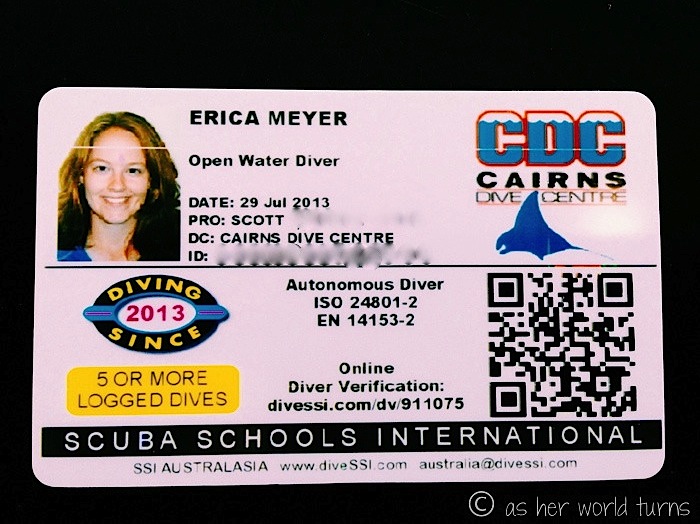
On the morning of day three we set out for the live-aboard boat.
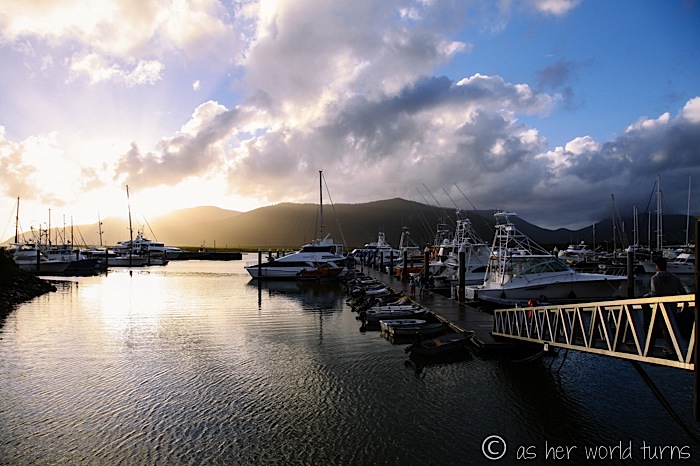
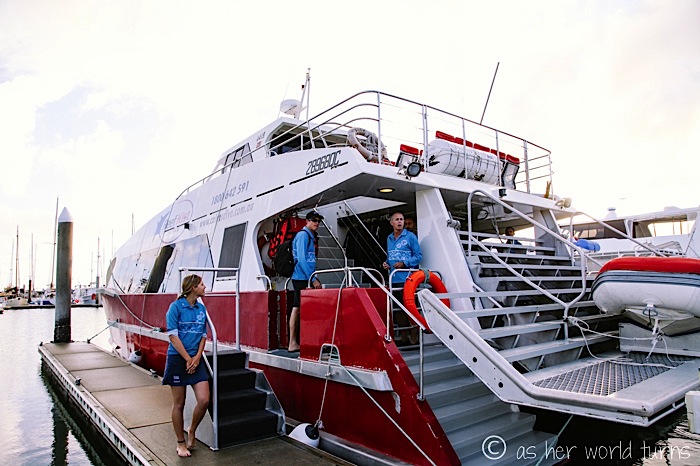
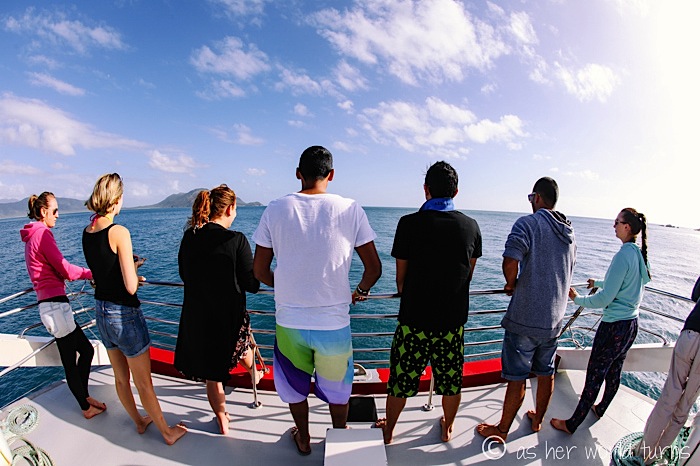
This boat transports us to the live-aboard vessel on the Great Barrier Reef. This is our first view from our new home for the next two days:
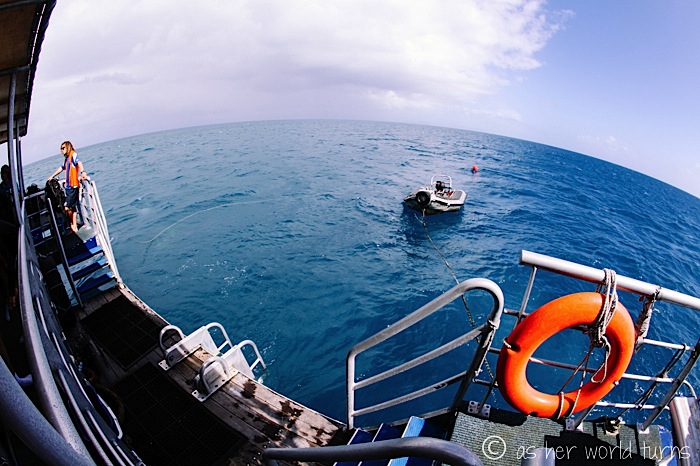
We are assigned spots on deck where a newly filled oxygen tank awaits us before each dive.
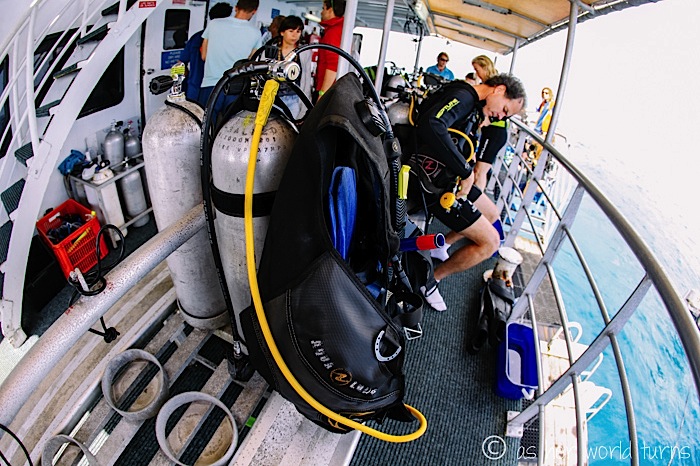
In our down time between dives (the “surface interval”) we relax on board and enjoy the view.
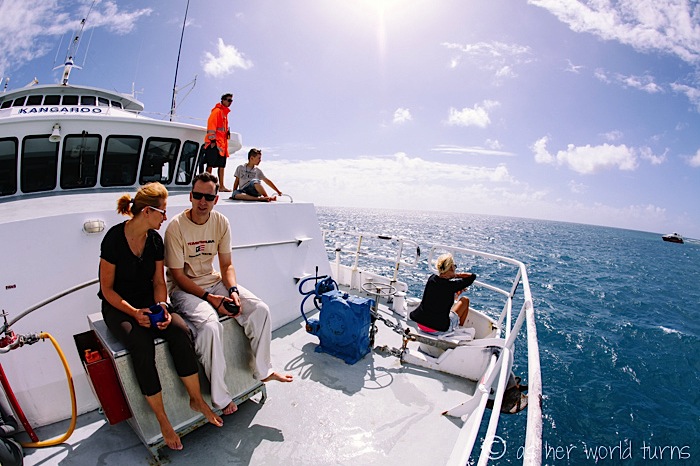
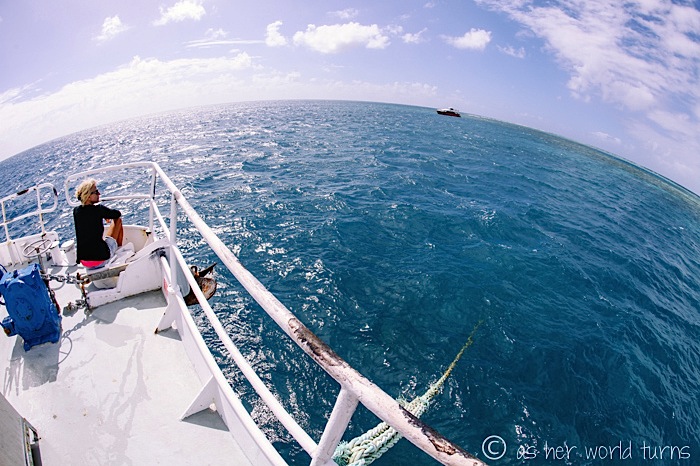
There’s a max of 38 passengers on board so it’s not overly crowded.

This is our room. I share with Lucy (my dive buddy for the course) and a girl from the States who’s not in our class.
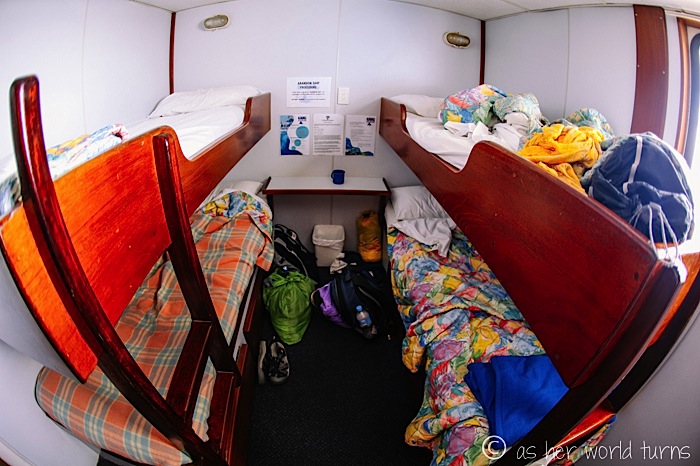
This is the library (and office of the ship’s videographer, who edits at that desk).
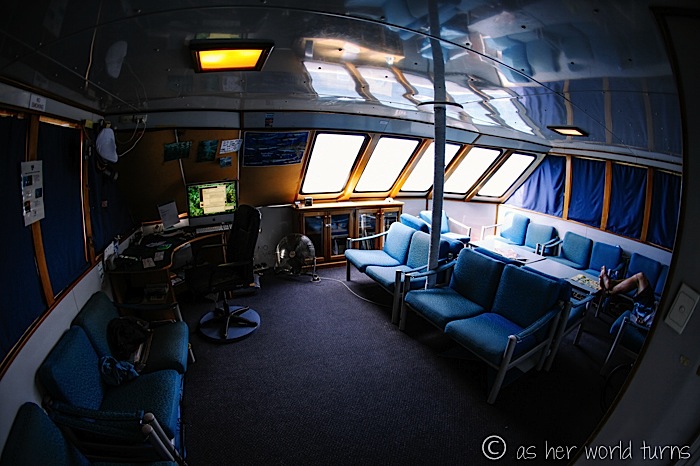
Here’s the kitchen and dining area (there’s more seating to the right of this photo):
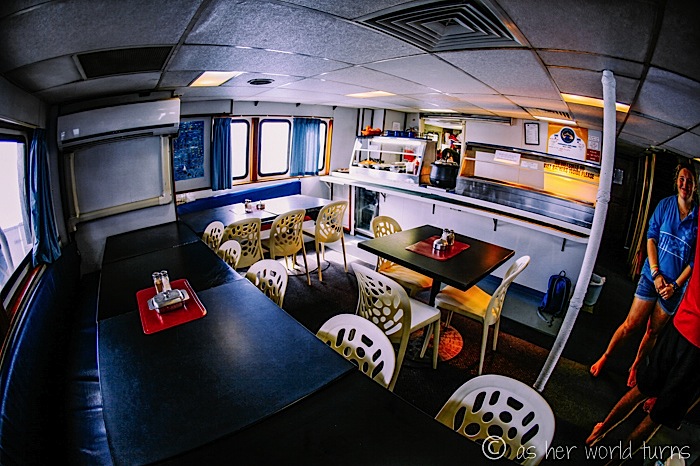
This is a map of one of our dive sites, East Timor.
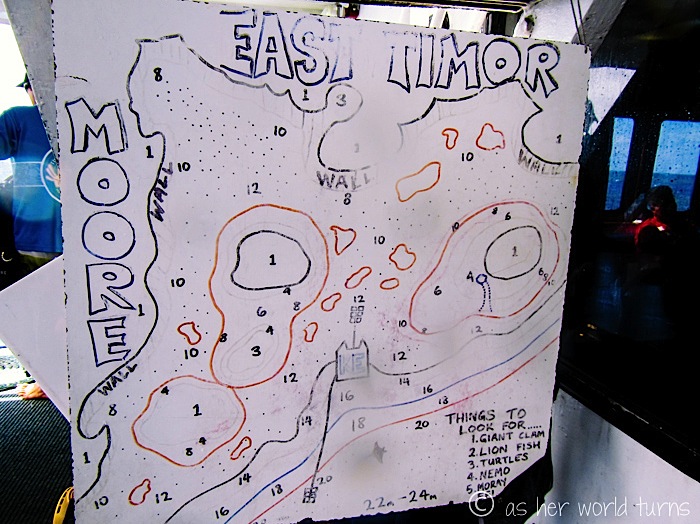
While underwater cameras are not permitted on training dives, I am allowed to bring it on my final ‘fun dive’ before we leave the boat.

This is my dive buddy Lucy from the U.K.!



The submersible pressure gauge tells me two key things: my depth and how much air I have left. In the photo below I’m 6 meters under water and have 150 bar remaining (200 bar is standard for a 45 minute dive).


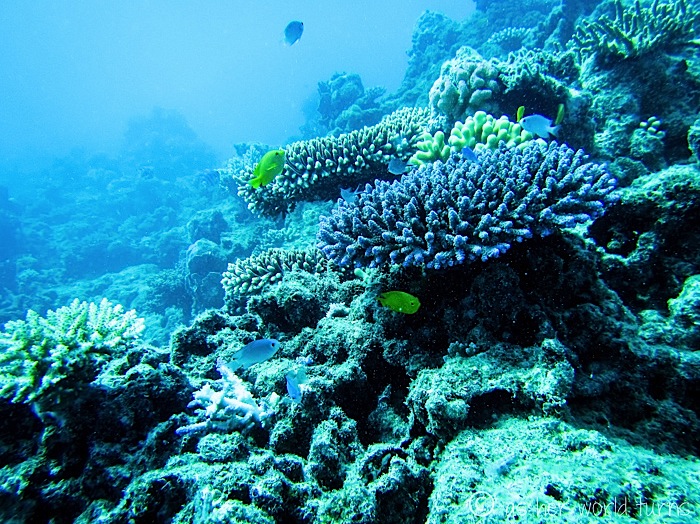

It’s a giant clam, not unlike those I saw in the Cook Islands:
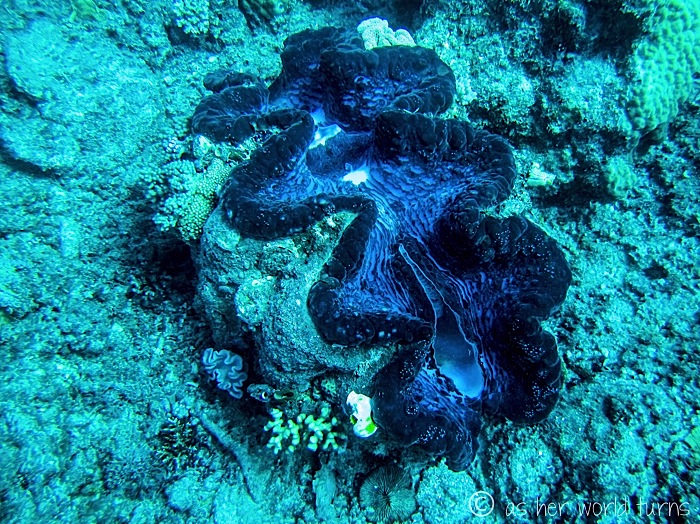
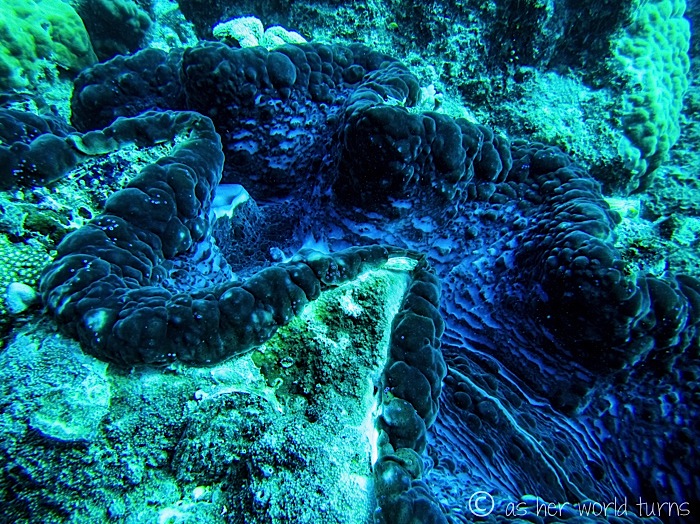

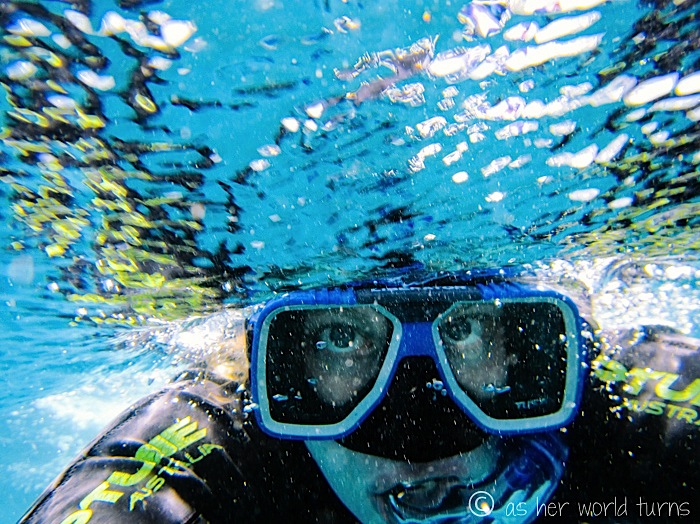


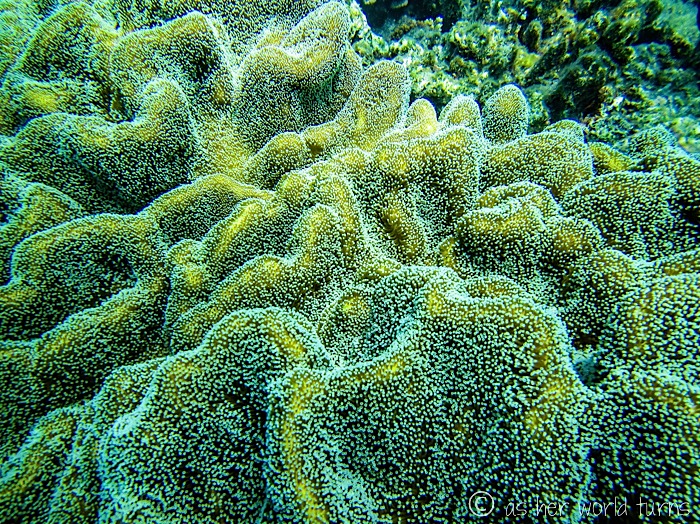
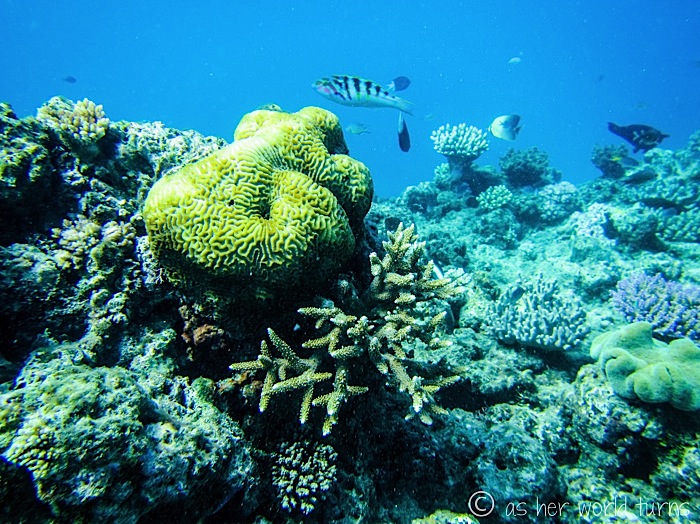
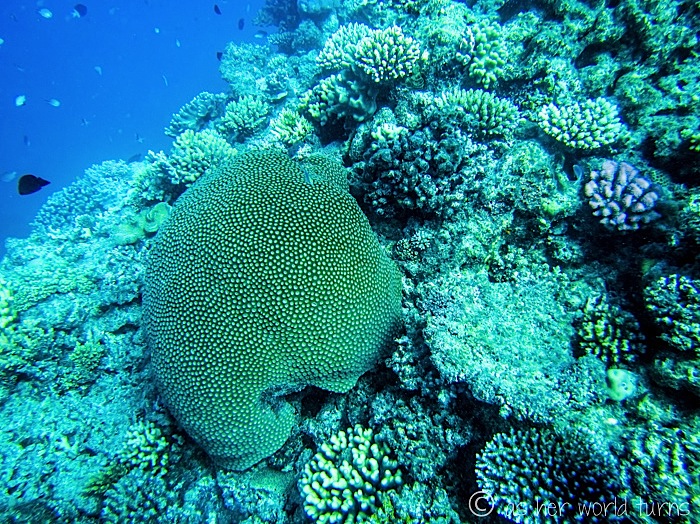
While I primarily focus on shooting stills, I did capture a few short video clips from our fun dive:
We dry off on the top deck as a rainbow appears in the distance.
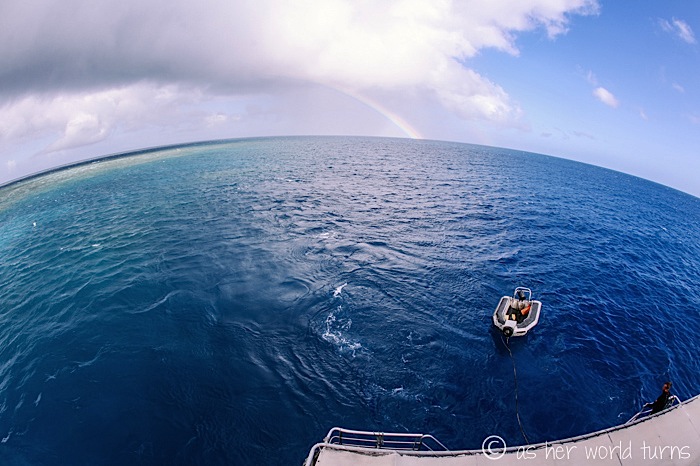
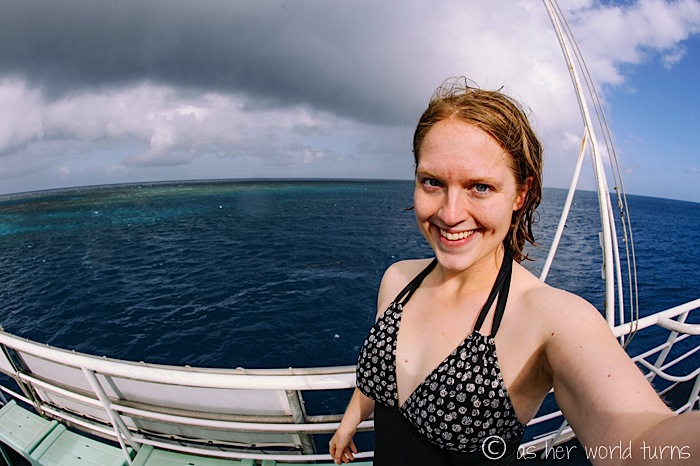
Lucy and me:
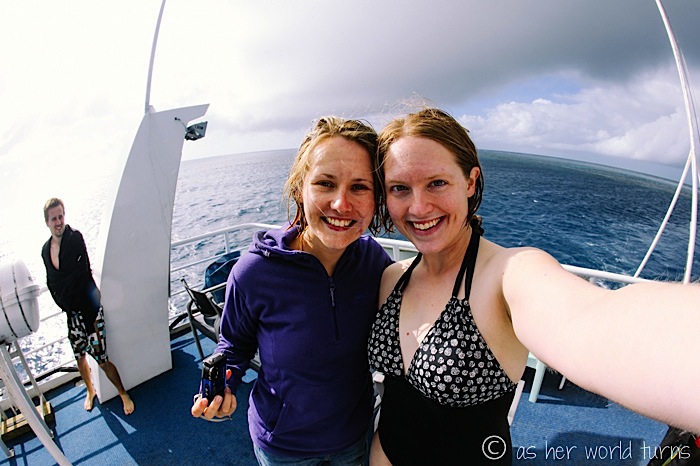
And here’s Dan and Oliver from Germany, also part of the Open Water class:
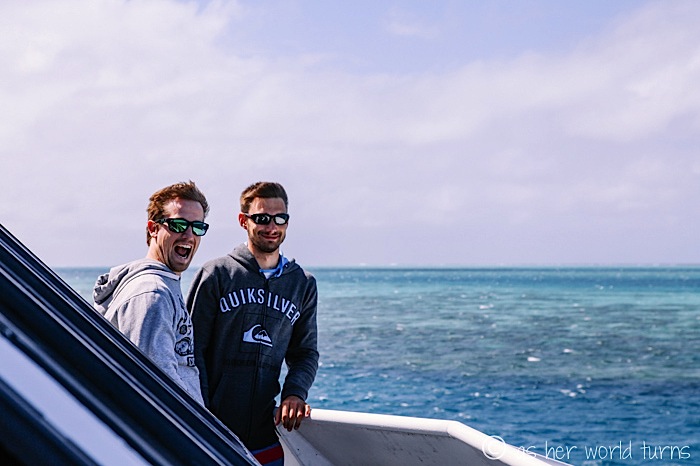
We fill out our dive logs to record info (our max depth, how much air we used, our surface interval, the ocean conditions, what kind of wet suit we wore and what kind of tanks we used, etc.).
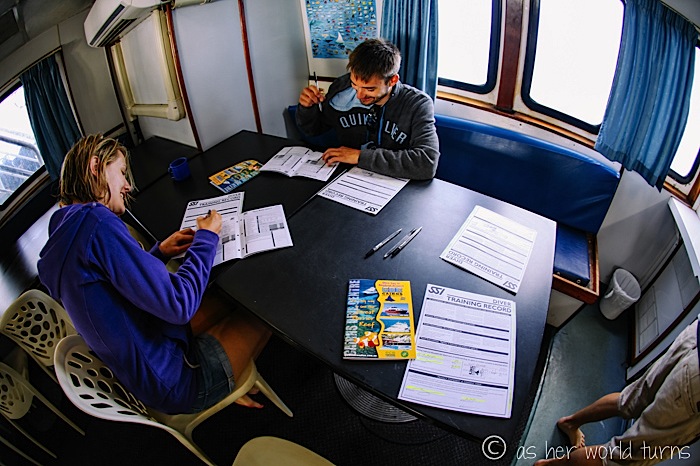
Dan has to pay a ‘Vegemite fine’ because he dived deeper than our instructor Scott.

Dan downs the spoonful of Vegemite like a champ. I would have gagged!! It’s food paste made from yeast extract… EWWW.
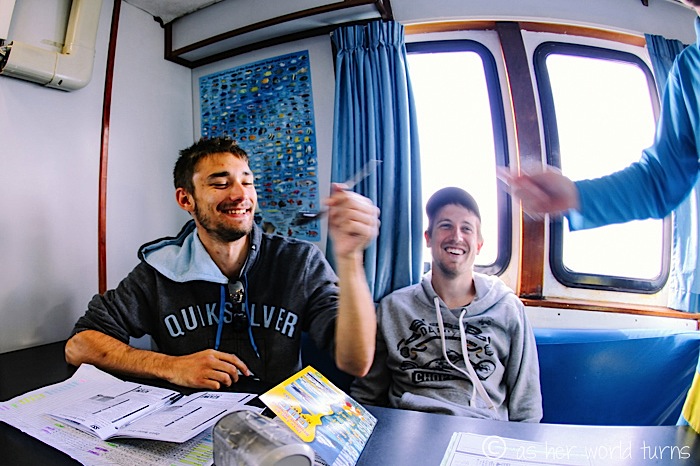
A few final photos as we prepare to return to the mainland… those are snorkelers below:
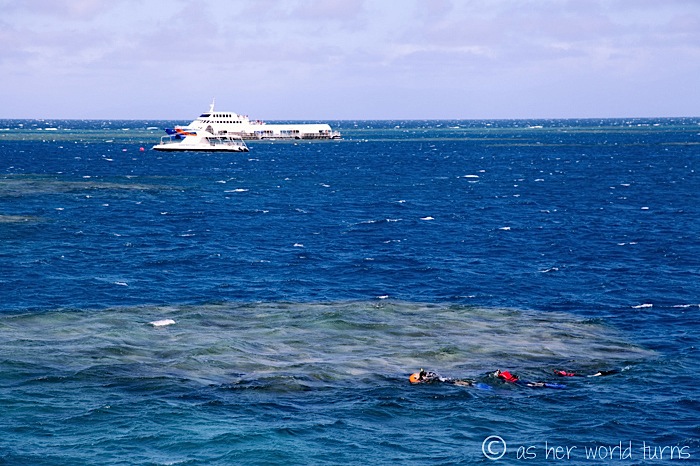
Another group gathers for a pre-dive meeting at the front of the boat:
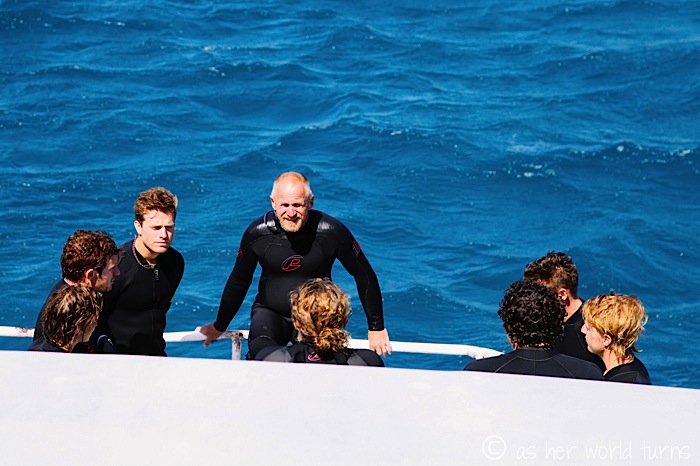
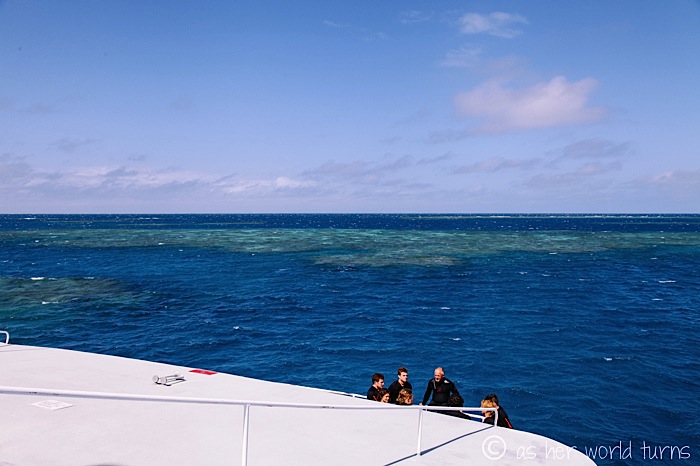
I am so grateful for the past four days. I feel a great sense of accomplishment in completing this course and a newfound confidence underwater. It’s opened up a whole new world. I’ve since logged 26 dives in three other countries! While this is an expensive hobby, it’s so rewarding for learn about and engage with another part of our planet.
Major thanks to Cairns Dive Centre for graciously hosting my Open Water dive course in exchange for photography. Opinions, as always, are my own.

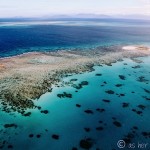

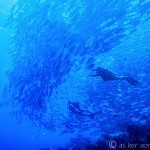
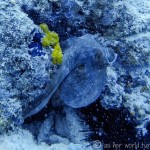
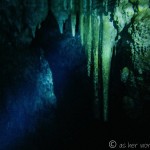
Hi
just wanted to know which camera u used for the under water shot?
i m heading for new zealand starting end march and hope to be done by sydney 12 june
hopefully i ll get to do all the amazing things u did on your website… even with my restricted time
with of course the must of scuba diving cairns, skydiving a place in new zealand, swimmimg with dolphins and bumgee jump…thx
Hi Helene! I used the Canon D-20 underwater camera. I also love the GoPro Hero 3 — that might make more sense for you, since it works both underwater and for adventure activities you’ll probably do in New Zealand. Good luck on your travels! You will love it!!